Israel will in “no way” halt its war on the Gaza Strip even if a deal is reached to release more hostages with Hamas, Prime Minister Benjamin Netanyahu said Tuesday.
His comments are likely to complicate talks on a new cease-fire that had seemed to gain momentum after Hamas released the last living American hostage on Monday in a gesture to U.S. President Donald Trump, who is visiting the region but skipping Israel.
They pointed to a potentially widening rift between Netanyahu and Trump, who had expressed hope that Monday’s release of Israeli-American soldier Edan Alexander would be a step toward ending Israel’s 19-month war on the battered enclave.
In comments released by his office Tuesday from a visit to wounded soldiers the previous day, Netanyahu said Israeli forces were just days away from a promised escalation of force and would enter Gaza “with great strength to complete the mission…. It means destroying Hamas.”
Any ceasefire deal reached would be temporary, the prime minister said. If Hamas were to say they would release more hostages, “we’ll take them, and then we’ll go in. But there will be no way we will stop the war,” Netanyahu said. “We can make a ceasefire for a certain period of time, but we’re going to the end.”
On Monday, Netanyahu’s office said he directed his negotiating team to travel to Qatar to discuss a potential ceasefire and prisoner exchange agreement with the Palestinian group Hamas.
The delegation is expected to remain in Doha at least until Thursday amid Trump’s Gulf tour.
Israel estimates that 58 Israeli captives remain in Gaza, including 21 who are still alive. Meanwhile, more than 9,900 Palestinians are being held in Israeli prisons, where they face torture, starvation and medical neglect-conditions that have led to multiple deaths, according to reports by Palestinian and Israeli media and human rights organizations.
The Israeli army has continued a brutal offensive on the Gaza Strip, killing more than 52,900 Palestinians since October 2023, mostly women and children.
The International Criminal Court issued arrest warrants last November for Netanyahu and his former Defense Minister Yoav Gallant for war crimes and crimes against humanity in Gaza.
Israel also faces a genocide case at the International Court of Justice for its war on the enclave.
Israel has promised to intensify its offensive, including by seizing Gaza and displacing much of the territory’s population again.
Days before the ceasefire ended in March, Israel blocked all imports from entering the Palestinian enclave, deepening a humanitarian crisis and sparking warnings about the risk of famine if the blockade isn’t lifted.
Israel says the steps are meant to pressure Hamas to accept a ceasefire agreement on Israel’s terms.
The World Health Organization said Tuesday that according to Gaza’s Health Ministry, 57 children had died from the effects of malnutrition since the blockade began on March 2.
Also on Tuesday, the Israeli military struck what it said was a Hamas “command and control center” located beneath a hospital in the southern Gaza city of Khan Younis. The strike on the European hospital was the day’s second strike on a hospital in the city.
Gaza’s Health Ministry said six people were killed and 40 were wounded in the strike. The dead were taken to Nasser hospital, where AP reporters saw the bodies.
Earlier on Tuesday, Israel struck Nasser hospital, saying militants were operating inside it, without identifying them. Two people, including a journalist who was targeted in an earlier strike, were killed.
Alexander’s release created a backlash against Netanyahu, who critics accuse of putting the lives of the hostages in danger by continuing the war.
Netanyahu says he is committed to returning all the hostages, destroying Hamas and resettling much of Gaza’s population through what he refers to as “voluntary emigration.”
During a nearly two-hour meeting in Tel Aviv with the families of hostages on Tuesday, the United States’ special envoy for the Middle East, Steve Witkoff, and Adam Boehler, the Trump administration’s envoy for hostage affairs, said they would do what was needed to bring the remaining hostages home.
Witkoff said everyone would prefer a diplomatic solution and that most hostages had been released through diplomacy.
The officials were heading to Doha, Qatar, after their meeting to join Trump who’s visiting the region. Qatar has been a key mediator between Israel and Hamas.
Witkoff said they wouldn’t be traveling to Qatar if they didn’t think there was a genuine chance for progress in negotiations.
Netanyahu has voiced support for a plan proposed by Trump for Palestinians to be moved out of the Gaza Strip after the war – a proposal that has infuriated Palestinians and Arab nations.
“We have put together an administration that will allow them to leave, but the problem with us is one thing – we need receptive countries,” Netanyahu said during his visit to the wounded soldiers Monday. “That’s what we’re working on right now. If you give them the go-ahead, I tell you that more than 50% will leave, and I think much more.”

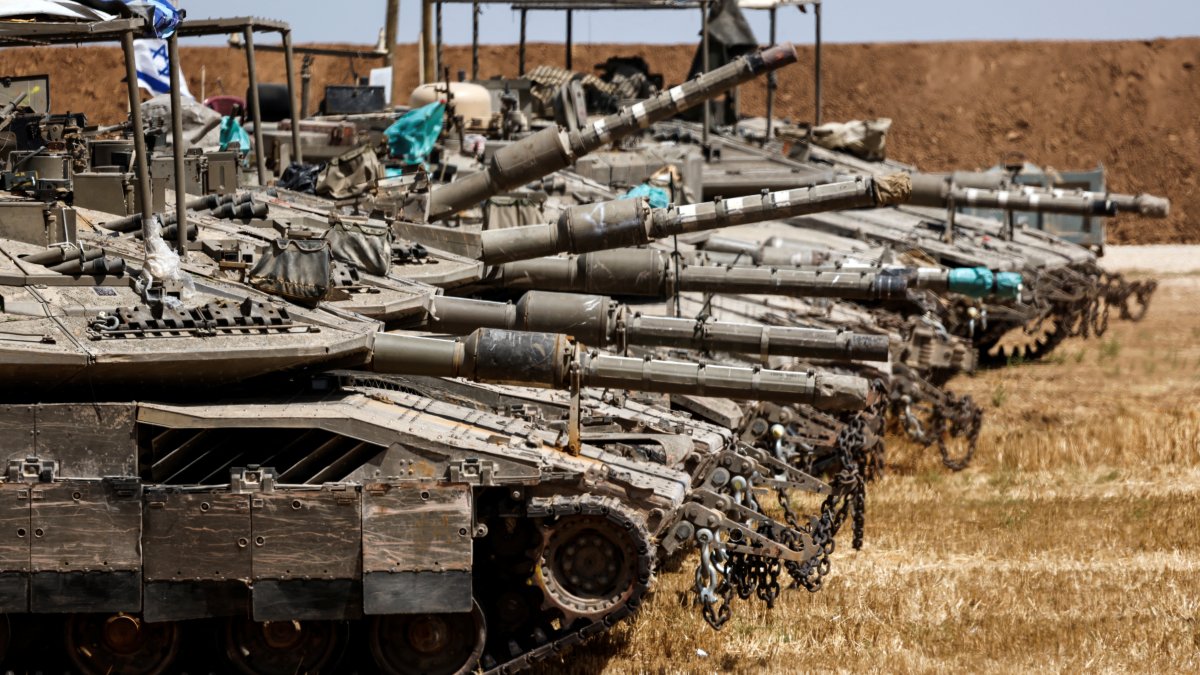





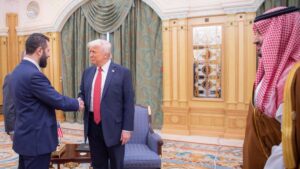





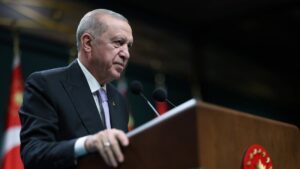
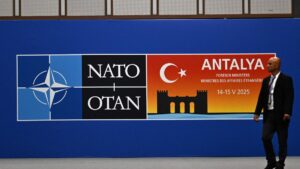



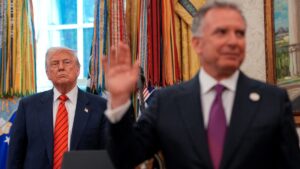

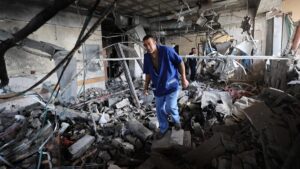

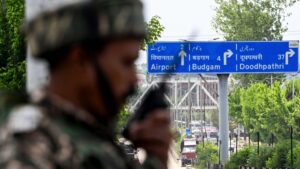


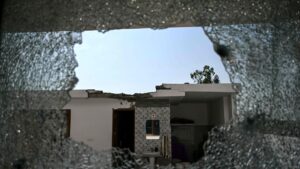



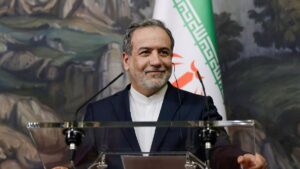




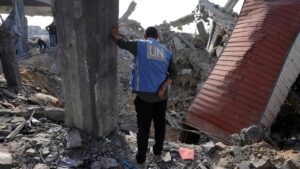

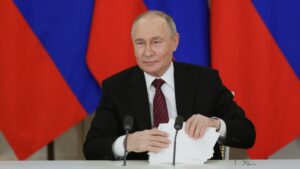



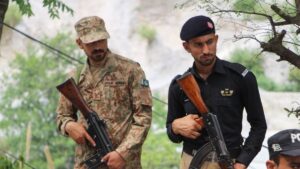




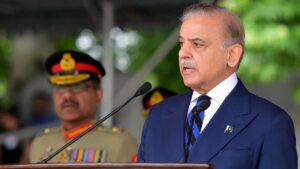


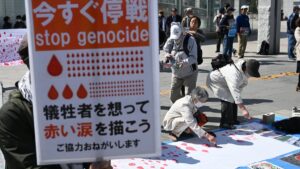
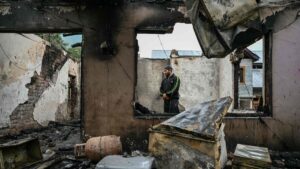


Be First to Comment